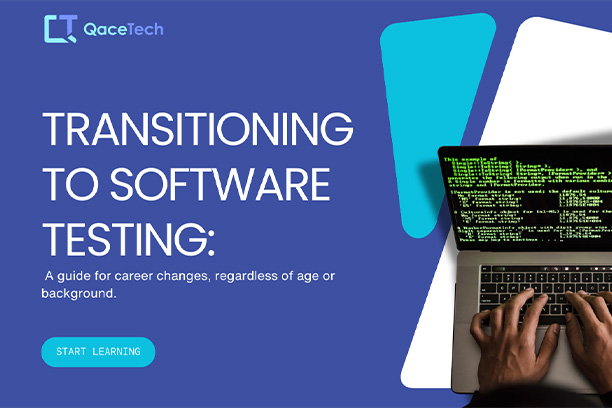Introduction:
Are you considering a career change to software testing but feeling uncertain due to your age or non-IT background? You’re not alone. Many individuals from diverse backgrounds have successfully made the transition to software testing and thrived in this dynamic field. In this blog post, we’ll explore actionable steps and strategies to help you switch careers to software testing, regardless of your age or previous experience.
1. Embrace Lifelong Learning: The first step in transitioning to software testing is to adopt a mindset of lifelong learning. While a background in IT or computer science can be advantageous, it’s not a prerequisite for success in software testing. Take advantage of online resources, courses, and tutorials to learn the fundamentals of software testing, including testing methodologies, tools, and techniques. Stay curious and open-minded, and be willing to invest time and effort into acquiring new skills and knowledge.
2. Leverage Transferable Skills: Even if you’re coming from a non-IT background, chances are you possess valuable transferable skills that apply to software testing. Skills such as critical thinking, problem-solving, attention to detail, and effective communication are highly relevant in the field of software testing. Identify and highlight these transferable skills on your resume and during interviews to demonstrate your suitability for a career in software testing.
3. Gain Practical Experience: Hands-on experience is invaluable in the field of software testing. Look for opportunities to gain practical experience, such as volunteering for testing projects, participating in online testing communities, or taking on testing-related tasks in your current role. Build a portfolio showcasing your testing projects, methodologies, and results to demonstrate your practical skills and experience to potential employers.
4. Pursue Relevant Certifications: While certifications are not always mandatory, they can be a valuable asset in demonstrating your proficiency and commitment to software testing. Consider pursuing certifications such as ISTQB (International Software Testing Qualifications Board) or ASTQB (American Software Testing Qualifications Board) to validate your knowledge and skills in software testing. These certifications can enhance your credibility and competitiveness in the job market, particularly if you’re transitioning from a non-IT background.
5. Network and Seek Mentorship: Networking can play a crucial role in your career transition to software testing. Connect with professionals in the field through online forums, social media, or industry events to learn from their experiences and insights. Seek out mentorship opportunities with experienced software testers who can provide guidance, advice, and support as you navigate your career transition. Building a strong network can open doors to job opportunities, mentorship, and professional growth in software testing.
6. Be Persistent and Resilient: Transitioning to a new career can be challenging, especially if you’re coming from a different industry or background. Be prepared to face setbacks and obstacles along the way, but don’t let them deter you from pursuing your goals. Stay persistent, resilient, and focused on your long-term objectives. Keep learning, adapting, and refining your skills, and remain confident in your ability to succeed in software testing, regardless of your age or background.

Conclusion:
Transitioning to a career in software testing is achievable, regardless of your age or background. By embracing lifelong learning, leveraging transferable skills, gaining practical experience, pursuing relevant certifications, networking, and maintaining persistence and resilience, you can successfully make the transition to software testing and embark on a rewarding and fulfilling career in this dynamic field.
Let’s help you experience a smooth transition into tech, visit: www.qaceacademy.com






